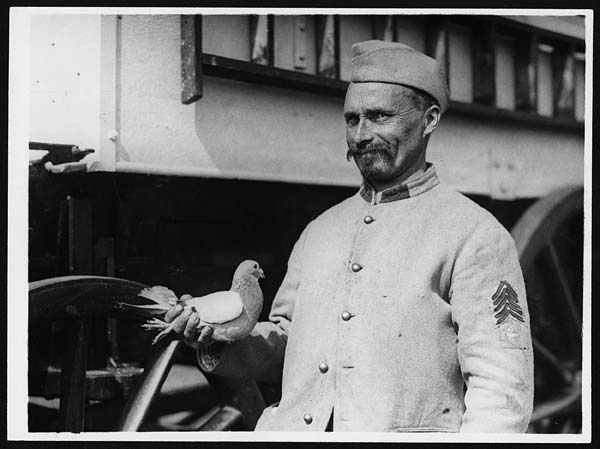Sometimes you just have to wake up and start tippy-tapping and see what happens. It’s all very well sitting staring into space, or out of the window, trying desperately to summon up a subject of interest, but that butters no parsnips. What an odd phrase that is. I mean, you know where you are with, say, worse things happen at sea. The truth of that is self-evident, as I have demonstrated, while at the same time proving the complete untruth of all goats cause mayhem. But what is the point of saying that something, some deed or action or intervention or whatever butters no parsnips? Very few actions do, so few that we could say the only deed that butters parsnips is the actual buttering of parsnips, that is, spreading butter on parsnips with a butter-knife. And there are not many circumstances in which we would want to do that. You can count them on the fingers of one hand, probably. Even that assumes you like parsnips, in preference to other root vegetables.
Irrespective of whether one likes them or not, the word “parsnip” itself is very pleasing. It has that snippy element. It would be interesting to know how our forebears, upon digging one out of the muck, progressed from designating it by an inarticulate grunt to a “parsnip”. I could look that up, but at the moment I do not feel impelled to do so. I have other things on my mind, of more pressing import.
Actually, that is not entirely true. It would be more accurate to say that I am conscious of an impending attack of vacancy-between-the-ears. I once knew a Quaker who announced, quite excitedly, that he was feeling absolutely wonderful because, for a period of about a fortnight, nothing much had been happening in his brain. For the onlie begetter of Hooting Yard, that would be a calamity rather than a cause for celebration. If nothing happened in my brain for two weeks, can you imagine the global meltdown? All around the world, devoted and indeed fanatical Hooting Yard readers would be up in arms, crazed and caterwauling, unable to cope with the silence that had descended upon their favourite website.
“Oh woe are we!” they would cry, possibly firing off Kalashnikovs into the sky in the manner of upset Middle Eastern persons, “Daily we check Hooting Yard but Mr Key posts nothing!”
I cannot let that happen, can I? I have responsibilities to my flock, possibly more onerous than had I been appointed Archbishop of Canterbury. At least in that case I would have been given a curious pointy hat to wear on ceremonial occasions. Not one of my readers has thought to send me a pointy hat. But I do not complain. I simply press on, indefatigably, like a maniac.
Speaking of the firing of Kalashnikovs into the sky, you do realise that all those bullets have to come down somewhere, don’t you? They go up and up and up, but eventually, in accordance with the laws of science, they slow down, stop, and start to fall, at great speed. I once read an interesting magazine article about people who had been killed or maimed by such falling bullets, which can land remarkably far away from the upset Middle Eastern person who fired them into the air. You would think they would realise that what goes up must come down.
That saying, like worse things happen at sea, is true. But we cannot say what goes to must go fro. Some things do go fro after going to, like pendulums and metronomes and seaside holidaymakers. But it is entirely possible just to go to, and to stay to, without ever going fro. I need not furnish you with exempla, as I am sure you can come up with your own. That’s the thing, you see, I respect my readers’ intelligence. I don’t pelt you with a barrage of babble about matters you can easily work out for yourselves. You rely on me to tell you about things you wouldn’t otherwise know.
Admittedly, I can also use this non-pelting tactic to cover for my own areas of ignorance, which are profound and fathomless. Consider : it may be that I cannot for the life of me think of an example of going to without in turn going fro. By airily suggesting that the matter is so damnably obvious that I need not bother, I trick you into thinking I have a sheaf of exempla in a pocket file, which I could transcribe for you if I so wished.
“Gosh! Mr Key is so clever!” you say, putting down your Kalashnikov for a moment as your jaw drops in wonderment, “Truly let it be bruited from nation unto nation that there is nothing he does not know!”
I am quite happy for readers to gain this impression, but it is very wide of the mark. If I listed all my ignorances we would be here until the cows come home. That is another odd phrase, suggesting either that cows never come home or, if they do, their arrival is a long long time in the future. There is within it a hint that cows might go to but not fro. I suppose occasionally a cow might not come home at all, if it is out in a faraway field, chewing the cud and gazing stupidly at nothing, when all of a sudden it is felled by a Kalashnikov bullet plummeting out of a clear blue sky directly on to its big cow head. Poor cow. But it is a quick death, unlike that of the lobster in the early story by Samuel Beckett.
Perhaps tomorrow I should work on a revised version of the tale. “Belacqua And The Cow”, perhaps, or “Belacqua And The Parsnips”. But I will have to reread the original first, if I have the time, what with one thing and another, in this vale of tears.





